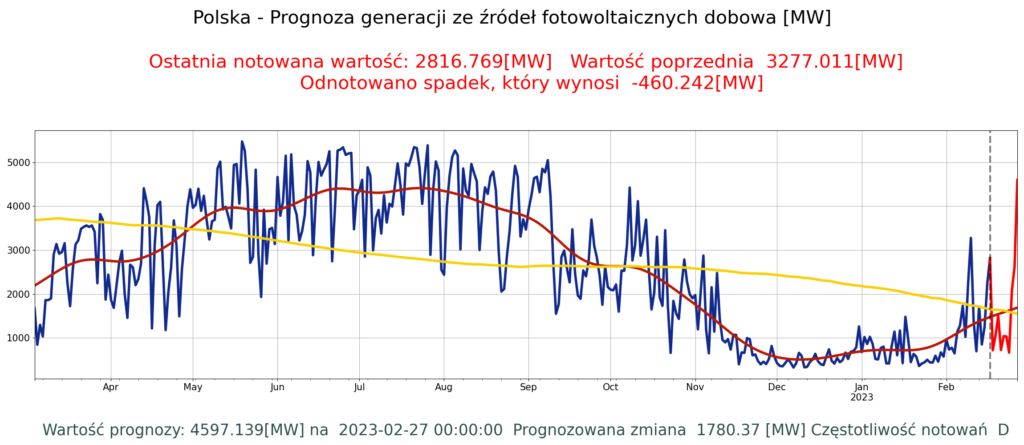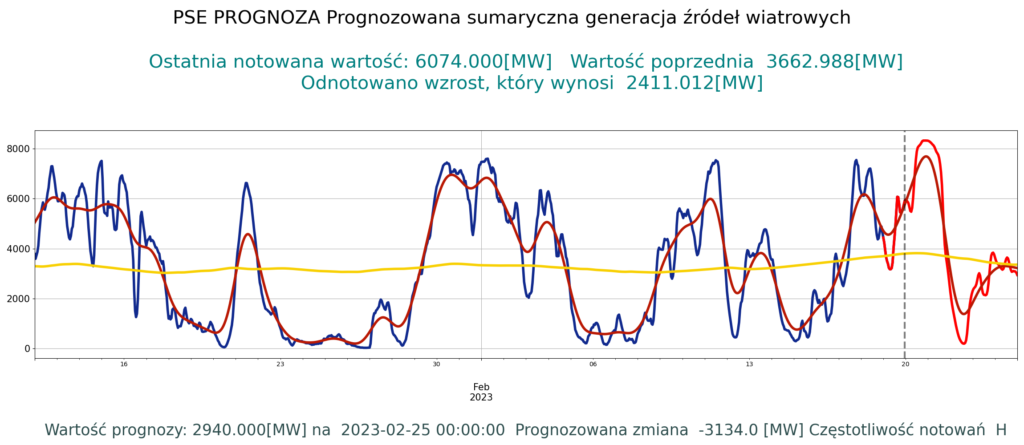Comparison of the course of forecasting with the actual TGBase index. Forecast made on the 10th of February 2023. Actual forecast of the TGBase index to the 17th of February 2023. The model proved a solid compatibility of the direction of change of the forecast and the direction of change of the actual TGEBase price […]
Comparison of the course of forecasting with the actual TGBase index.
Forecast made on the 10th of February 2023.

Actual forecast of the TGBase index to the 17th of February 2023.

The model proved a solid compatibility of the direction of change of the forecast and the direction of change of the actual TGEBase price ( detecting turning points). It reflected last week’s price levels quite well, whereby the forecast for the weekend of 18-19.02 slightly undervalued the actual values.
The explanatory variables were supplemented with data on projected electricity demand and information on upcoming holidays (weekends, holidays).
The explanation of the model
The forecast of generation from wind and photovoltaic sources is based on weather forecasts. Its correlation with the TGEBase index for the period from 01.01.2022 to 10.02.2023 was -0.5576. This agrees with intuition, because usually when the share of renewable sources increases in the energy mix, the price of energy decreases, and when this share decreases, then the price increases. This is due to the fact that the cost of producing a unit of energy in renewable sources is lower than in conventional sources.


The linear version of the model showed the dependence of the two quantities quite well in the long term, but in short term, there were quite considerable inaccuracies. To obtain better precision, two options were used. First, additional explanatory variables were included. Second, a nonlinear model was used.
Taking into account additional variables and the non-linearity of the relationships between them increases the precision of the model. Optimization using a neural network is carried out in an iterative learning process. To benefit from the model’s predictions on an ongoing basis, the learning process is carried out on the most recent data, as shown in Graph 5.

